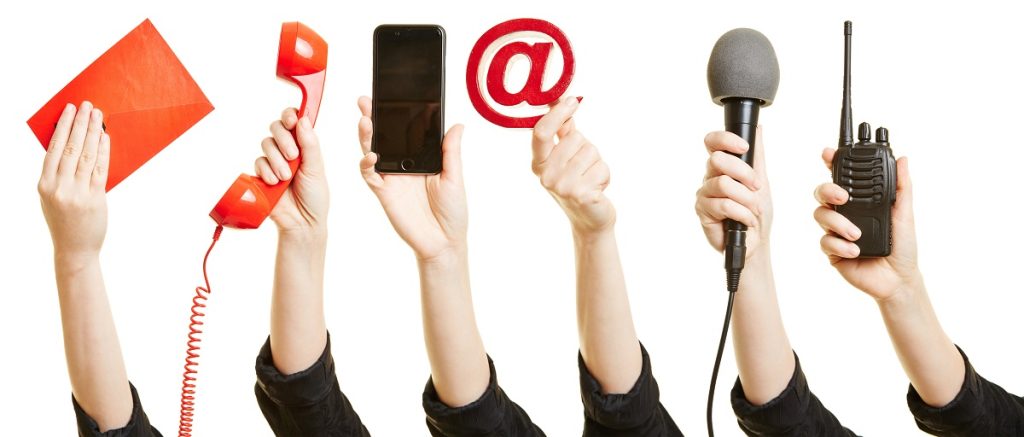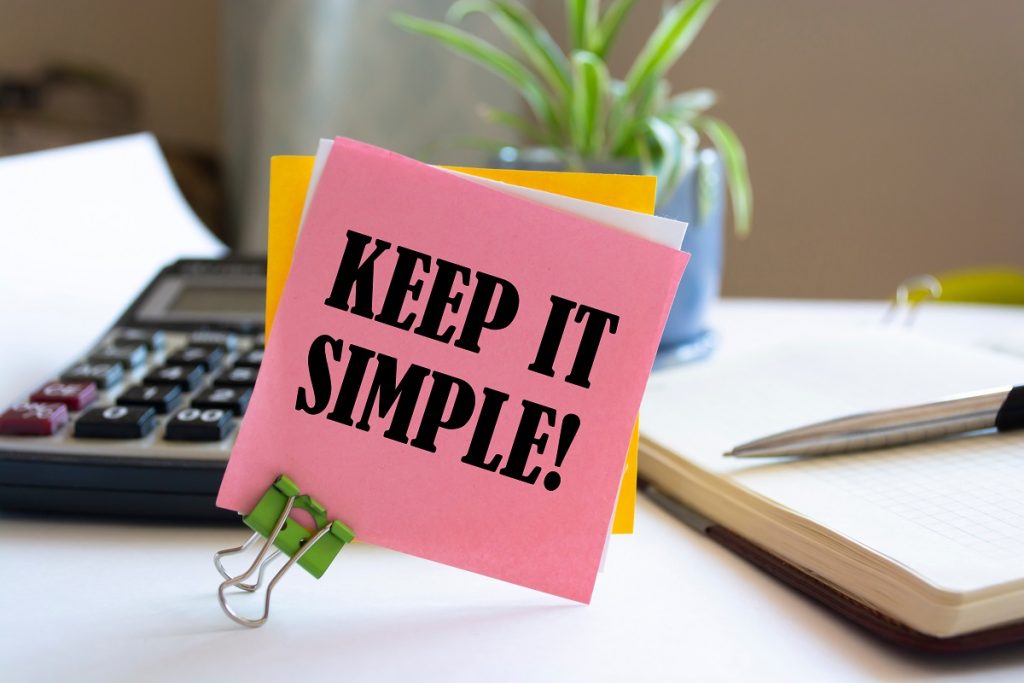Communication is key in all interactions, whether in person, public speaking, writing, or electronically. Following the 7 Cs of communication will ensure the message gets across as you deliver it in a clear, concise, concrete, correct, coherent, complete, and courteous manner.
Ever find yourself struggling to communicate effectively? When you badly want to get your point across, whether in your personal life or in the corporate world, understanding the 7 Cs of communication is crucial. The 7 Cs will help to ensure your communication skills are getting your point across in the best possible manner.
What Is A Communication Technique?
Many important communication techniques stand true regardless of the mode of communication. In other words, the essential components of good communication skills are the same whether you are communicating in public or in private. Likewise, it does not matter if you are speaking in person, over the phone, via email, in writing, etc.
Using the best practices in communication will help you to get your point across more effectively. For example, looking someone in the eye when speaking to them in person is a good technique that supports the 7 Cs of effective communication that can help you get your point across.

What Are The 7 Cs Of Communication?
1. Clear Communication:
It stands to reason that getting across a clear message is vital because you want to get your point across. Whether you are speaking or sending an email, make sure nothing you say can be misinterpreted. Sending unclear communication signals can cause problems in personal communication, but can have even more serious repercussions in business.
2. Concise Communication:
Concise communication involves saying what you need to say in as few words as possible. When using this tool, all unnecessary sentences are left out, and the focus is on relevant information. When messages are brief and concise, they are memorable.
3. Concrete Communication:
Don’t be wishy-washy. Concrete means using good examples with credible sources. A concrete message is black and white and less likely to fall to misinterpretation.
4. Correct Communication:
This has multiple meanings. First, make sure your complete message is factual and accurate. Next, in addition to fact-checking for accuracy, you should be certain it has no grammatical errors and use a spell checker.
5. Coherent Communication:
Coherent means clear and easy to understand. The words should make sense to your audience. Ensure that the message matches the level of education and knowledge of those reading it. Your message will have a greater impact if the main points are easy to pull out.
6. Complete Communication:
Including all of the necessary information is essential when trying to get the point across. Leaving out important details and key points will open the door to misinterpretations and the need for more calls or emails.
7. Courteous Communication:
Although functionality is necessary, courtesy is equally essential. Sometimes people forget that being polite is just as significant as being factual. Even a firmly-worded message can be polite and respectful.

What Is The First C In The 7 Cs Of Communication?
The first of the seven Cs is clear communication. True for everything from effective business communication to talking in your personal life, being clear helps to prevent misunderstandings and reduces the need for endless communications.
Why is clarity the most important?
- Less likely to be misinterpreted.
- Builds trust, which is good for public relations.
- Shows you know the subject matter.
- Avoid slang and jargon.
- Omit technical terms unless the intended audience is certain to understand.
Being a clear communicator is the first step to having effective communication skills. I
What Are The Major Components Of Interpersonal Communication?
Often people ask how they can communicate most effectively. Note that these points will apply both in business & interpersonal communication.
- Know your audience. To whom are you speaking, writing, or addressing your article? Knowing your target audience so you can focus on their needs is an excellent way to become a strong communicator.
- Keep it simple. Don’t waste your breath on technical terms and large numbers of filler words. Keeping it simple is a great way to be understood.
- Be clear and concise. As communication techniques, clarity and brevity are valuable assets. Your listeners get the message more quickly.
- Give examples. When discussing something, do not hesitate to use specific examples to help your listener to understand.
- Ask for clarification. Don’t be afraid to ask questions if you don’t understand or need clarification.
- Be patient. Rushing communication is a great way to be misunderstood. Taking the time to explain something carefully, asking clarifying questions, and ensuring your audience is comfortable with everything you have said are all good techniques.
- Practice. When you have an important message to give, take the time to practice so you will be sure to get it across effectively.

Seeing The 7 Cs In Action
What about the 7 Cs in action? What does that look like?
When trying to be a clear communicator, some people are very good at this, while others perpetually muddy the water.
First, think about clarity. Don’t put excessive amounts of unnecessary information into an email or memo. While it is customary to start with a greeting and end with some sort of sign-off, extra wordage dilutes the message.
Hi Anna!
Thank you for your hard work on the presentation you were asked to complete. As you requested, I have looked over the slideshow and made some suggestions. Can you please have the revised copy to me by Friday?
If you have any questions about my suggestions, please let me know.
Pam
Phrases that drive people bonkers in an email include “this is just my opinion” or “I hope you don’t mind that I.” Stay away from phrases that exude self-doubt. Be confident in your communication.
Anna,
I appreciate your efforts on the project you have been working on. Slides 3 and 4 do not have images depicting the customer’s product in the best light. Can you please change those images? The team needs those changes by Friday. The rest of the slideshow is perfect.
Pam
Also, remember to use concrete communication. Remember the directive not to be wishy-washy? There is no place for “I feel like” or “If you want to” in a business email. If you are speaking to an employee, make your expectations clear and specific, “I need you to do X,Y,Z.” Better yet, I need you to please (complete this task) by (this date) in (this manner).
That is clearer than “I’m hoping you can finish the project soon.” See the difference there?
Always be courteous. Too often, people allow a passive-aggressive (or aggressive-aggressive) tone into professional correspondence. If you have interviewed for a job, it is okay to email, “I really enjoyed the opportunity to interview with you and hope to hear from you soon.” It is not okay to say, “I have several potential opportunities on the table and need to hear from you ASAP.”
Fred
Especially when communicating via email, keep messages concise. People can get way too wordy in an email. Do not make this mistake. Emails should be short, clear, polite, professional, and to the point.
Fred,
Selecting our final choice for the accounting manager job was a difficult decision as we had many qualified candidates vying for one position. The committee did make an offer to another candidate, and she formally accepted today. Would you like us to keep your application packet on file should another opportunity arise?
Good luck with your job search.
John

What Tone Should Communication Take?
Often people find themselves contemplating the tone that their communication should have. This is a great question that is worth mastering. There are three tones to consider: formal, informal, and humorous.
Certainly, the three can intermingle at times. For example, if you are giving a formal speech, you might tell a funny anecdote to break the ice. People might laugh at your joke or story. However, you can still remain professional and businesslike and then get to the point. Conversely, you can also be very serious in your personal life.
Your communication should vary based on its purpose.
- Business: Anytime you communicate in the business world, your communication should be polite but not overly familiar. You want to avoid assuming anything about your intended audience. Stay professional.
- Personal: Within the context of your personal life, the tone of your communication does depend on to whom you are speaking. Are you talking to your best friend? That tone would be very different than if you were talking to a casual acquaintance.
- Social Media: The world of social media is filled with complicated nuances. An excellent rule of thumb for this is not to overshare. Bear in mind that for anything you share on the internet, you should have zero expectations of privacy.
You should ask yourself these questions when communicating:
- To whom am I sending this message?
- What is my relationship with this person?
- What is the point of the message?
- Are there emotions I am trying to convey?
- Is my message clear?
If you give yourself honest answers, your communication should be on target.

